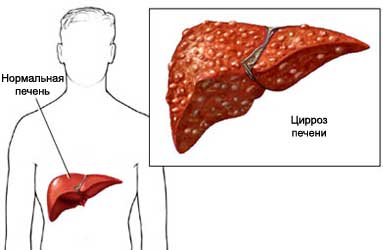Liver resection
Description liver resection
Liver resection – surgery to remove part of the liver.
Causes of liver resection
Liver resection often used to treat cancer in the liver. It can also be carried out the following reasons::
- To treat other liver tumors (including benign [non-cancerous] defeat);
- Treat Cancer, that has spread to the liver (most commonly seen in patients with colon cancer);
- The selection of the liver transplant;
- Treatment of liver injury.

Possible complications of liver resection
If you plan to liver resection, you need to know about possible complications, which may include:
- Increased bleeding;
- Reaction to anesthesia;
- Infection;
- Nausea and vomiting;
- Low blood sugar;
- Hepatic failure.
Factors, that may increase the risk of complications:
- Smoking;
- Diabetes;
- Pre-existing liver disease (eg, cirrhosis of the liver, cholestasis);
- Drinking large amounts of alcohol, before or after surgery.
Long-term side effects are rare, because the liver is able to recover and function normally within a few months. But recovery may be slower in older patients.
We need to discuss these risks with your doctor before surgery.
How is liver resection?
Preparation for the procedure
Before surgery:
- You may be given chemotherapy, to reduce the swelling of the liver;
- You can view the doctor, who specializes in liver operations;
- Your doctor may conduct some tests, to determine the exact location of a tumor:
- Abdominal ultrasound – test, which uses sound waves, to make pictures of organs inside the abdomen;
- CT scan – such as X-rays, which uses computer, to make pictures of structures in the abdomen;
- PET scan – test, which uses a small amount of radiation, to find the area of the body's metabolic activity with anomalies, such as cancers;
- MRT – test, which uses magnetic waves, to make pictures of structures in the abdomen.
Consult your doctor about the drugs taken. A week before surgery you may be asked to stop taking some medicines:
- Aspirin and other nonsteroidal anti-inflammatory drugs (eg, Ibuprofen, naproxen);
- Blood-thinning drugs, such as warfarin;
- Antiplatelet drugs, such as clopidogrel.
Anesthesia
Used general anesthesia, which blocks any pain and support the patient during surgery in sleep.
Procedure liver resection
The doctor makes an incision in the right upper abdomen, under the rib cage.
The doctor removes the tumor in the liver, and some of the surrounding healthy tissue. Sometimes it also needs to be removed the gallbladder. The doctor may use ultrasound probe for the study of the liver during surgery, To make sure, that the whole tumor has been removed. In the area of the operation time can be placed drainage tubes to drain accumulated fluid and blood. The doctor closes the incision with staples or sutures.
Immediately after treatment
You are in 24 hours will be placed in an intensive care unit. The hospital staff will monitor vital signs.
How long will the liver resection?
3-7 hours.
Liver resection – Will it hurt?
Anesthesia prevents pain during surgery. Pain or soreness during recovery are reduced with the help of painkillers.
The average hospital stay
This procedure is performed in a hospital. Usually the duration of stay of 4-8 days. If you have complications, stay may be longer.
Care after hepatectomy
Care in a hospital
- You will receive nutrition through an IV. It will be removed, as soon as you can eat and drink on their own;
- Drainage pipes will help to accelerate the healing of tissue. Drainage, usually, removed before discharge from the hospital;
- Maybe, You will need to install a catheter into the bladder to drain urine. Buda catheter removed after a few days;
- Appointed painkillers. They can be administered by injection, dropper, or via a pump and a needle in hand;
- Administer, to prevent nausea.
Home Care
When you return home, Follow these steps:, to ensure the normal recovery:
- Change the bandage, as prescribed by your doctor;
- Ask the doctor, when it is safe to shower, bathe, or to expose the surgical site to water;
- Take pain medicine as needed;
- You will begin to feel better within six weeks after surgery;
- Be sure to follow your doctor's instructions.
Contact your doctor after hepatectomy
After discharge from the hospital need to see a doctor, If the following symptoms:
- Redness, edema, increased pain, bleeding, fever, or protrusion at the incision site;
- Nausea and / or vomiting, which do not disappear after taking the prescribed medicines, and persist for more than two days after discharge from the hospital;
- Severe abdominal pain;
- Signs of infection, including fever and chills;
- Cough, shortness of breath or chest pain;
- Pain and / or swelling of the legs, calves and feet;
- Pain, burning, frequent urination or persistent bleeding in the urine;
- The feeling of weakness or dizziness.
